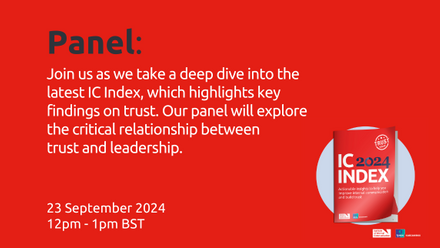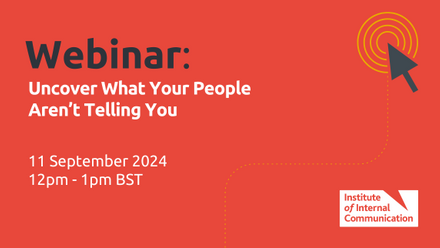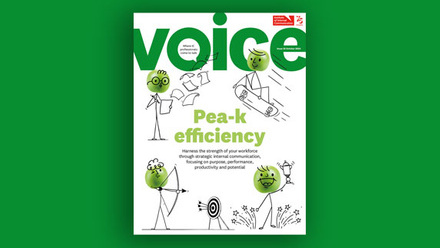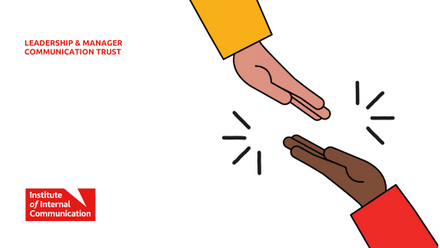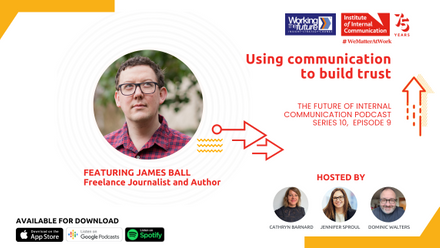I’m thrilled to oversee the launch of the second annual IC Index report. This important piece of research, produced in partnership with Ipsos Karian and Box, reveals the impact internal communication has on colleagues and co-workers.
By focusing on what a sample set of 4,000 UK workers want and need from their internal communication function, we are able to present validated, actionable data that helps internal communicators devise comprehensive strategies, influence senior stakeholders and build the business case for further investment.
As a profession, we have much to celebrate.
And yet in parallel, we must not rest on our laurels.
Trust is on a knife edge
This year, our research highlights the impact trust has on organisational effectiveness. Worryingly, it also illuminates the extent to which trust sits on a knife edge.
Our analysis reveals that people in the UK workforce fall into one of four categories when it comes to trust. While these categories are fairly evenly distributed, it’s concerning to note there are almost as many sceptics and cynics (48%) as there are ‘trusters’ and proof-seekers (52%).
This has significant implications for business performance and organisational effectiveness. And for society at large.
At a time when faith in politicians is at an all-time low and there seems no end of institutional failings, it’s never been more important for business leaders to step up, take a stance and act as a force for good in the world. Edelman’s annual Trust Barometer findings support this. Our data is complementary. It shows trust, engagement and advocacy all drop sharply when people feel their employer doesn’t meet their expectations in this area.
Organisations across the board face escalating pressure to address the big issues of our time. Inequality, the climate emergency, the potential of AI to destabilise work, shifting attitudes towards work, inadequate access to good work and fair pay – there is no shortage of challenges needing urgent attention.
But leaders will struggle to address these broader issues if their focus is diverted by more pressing issues such as low engagement and stalling productivity. In challenging markets, anything that impacts the bottom line will naturally take priority.
Organisational engagement, cooperation, collaboration, creativity, transformation, innovation and ultimately, long-term sustainability, are all contingent on trust. As our research shows, trust is a linchpin of organisational effectiveness that drives advocacy.
Trust and internal communication
What is trust?
It can be tricky to define because it’s situational and subjective. It’s personal. Its presence very much depends on the lived experience of each individual and the context or situation in which trust is required.
Personally, I like the definition provided by trust researcher by Oxford academic Rachel Botsman. She writes,
“Trust enables us to feel confident enough to take risks and open ourselves up to being vulnerable”.
In uncharted landscapes, organisations need to take risks, experiment and innovate like never before. They urgently need to find new ways of delivering value to their stakeholders. Internal communication has a centre-stage role to play in helping build intra-organisational relationships and communities that imbue the confidence to collaborate and co-create without fear or the need to be right first time.
Building trust is relational and proximal. It builds person by person, relationship by relationship. And it starts with open, authentic, honest and clear communication. Trust in our leaders and managers is essential, as our data shows.
This year’s IC Index revealed that 60% of internal communication practitioners expect significant organisational change in the coming 12 months. With so much change and disruption around us, leaders and managers must be equipped, willing and able to consistently and coherently communicate the organisational vision and strategy to ALL internal stakeholders. Only then, the data shows, can colleagues understand their personal contribution and how and why it matters.
The more we can promote, foster and encourage relational communication – relationship-oriented communication – in our workplaces, the more we can deliver strategic value as a profession. As our workplaces become increasingly digital, distributed, fragmented and remote, community and network-building at work is the new opportunity for our profession.
Maintaining our humanity at work is the healthy antidote to AI-mediated futures.
In 2024, the IC Index presents six key findings:
- Good internal communication is integral to trust
- Belief in the strategy is an important driver of trust
- Many don’t think their employer operates in their best interests
- Change is a constant challenge
- Many are not yet ready for AI
- The majority are distrustful of return to office mandates
We stand at a crossroads. The decisions we make today will determine the future social health and prosperity of both our workplaces and our society. We owe it to ourselves and to all future generations to think critically and question whether the actions we take at work today might have unforeseen consequences down the line.
Accessible, authentic, equitable, open communication matters. Trust matters. As a profession, we must position robust internal communication at the heart of sustainable and resilient business strategy.
The future wellbeing of our society depends on it.

